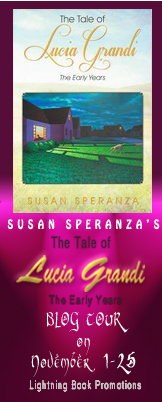 Publish or Perish
Publish or Perish
by Susan Speranza
Recently a friend of mine who self-published a very good novel fell into despair and ranted that if she only wrote for herself she would quit. She doesn’t want to be an “independent”. She’s bad at selling herself and hates it anyway. Her goal is to be published by a real publishing house. “I want an agent and deadlines and someone reviewing my work. I want someone to guide me through the industry, someone who will and help make me a better writer.”
Her rant got me thinking about writers and their relation to the present day publishing industry. In a guest post I wrote for another blog, I discussed who exactly we write for. While it’s foolish for a writer to sit alone in a room writing, totally unmindful of readers, I believe that we do in fact write for ourselves, because out of all the stories there are to write, we choose to write only those stories that we need to write. At the end of the day, we ultimately write for ourselves – but we always hope there are readers we can reach who see as we see, feel as we feel.
Gone are the days when an editor such as Maxwell Perkins could protect, nourish and transform a writer like he did with Thomas Wolfe. That was an era where writers were treated like divas. But clearly the world has changed and so has the world of publishing. With the small press revolution in the 70’s and ’80s and the rise of the internet and Amazon soon thereafter, the major publishing houses are now in retreat. Agents rarely consider manuscripts that aren’t perfectly written and perfectly edited. Publishers will consider only writers who already have a following – who have already marketed themselves.
Today there are more opportunities than ever for writers. But in many ways it’s also harder. It no longer matters how you get your book printed; previously, the only way was to have it accepted for publication from a real publisher. With Print on Demand and such services as Createspace, Lulu, Lightning Source, authors can usher their work into print themselves. The hard part now is getting readers to pay attention. The focus – and the challenge – has shifted to marketing. Admittedly, it’s a difficult challenge with so many books being “published” either independently or by small presses that it seems like each writer is only shouting into the wind. But whether writers are published by “real” publishers or independently, unless the book is an instant success, they still have to market themselves. In today’s publishing world, there’s no escaping this.
There are so many services available now for writers can use to make their work professional – from editing and formatting and design services to writing groups where members read, review and critique others works in exchange for the same service. So do writers really need to be published by a “real” publishing house then? I don’t think so.
Ultimately, as my friend lamented, the only one who can make a writer a better writer – is the writer herself. No agent, editor or publishing company will do that today.
Writers, then, should not look with envy upon authors published the traditional way. They still have to do all the same work that an “independent” has to do, including hawking their wares to the public. So if you don’t publish with a real publishing house, don’t despair – there are enough avenues for you to take so you won’t perish…
About The Tale of Lucia Grandia

The story is told as a memoir; each chapter describes a particular incident in Lucia’s life which shows the constant struggle between her parents and the perverse effect it has on her and her siblings. From her complicated and unwanted birth, to her witnessing a suicide at age 3, to her stint as a runaway at age 14, the story progresses to the final crisis where as a young woman, she is turned out of her house and banished from her family forever.




Sounds like a good book. Dysfunctional family, I can relate. lol
If there was a “LIKE” button similar to FB, I’d hit like for this comment 🙂
I have actually having a good time bouncing from one site to the other. Thanks!
@classy_mommie
Thanks for following!
Informative and encouraging article for indie authors. THANKS! Bette